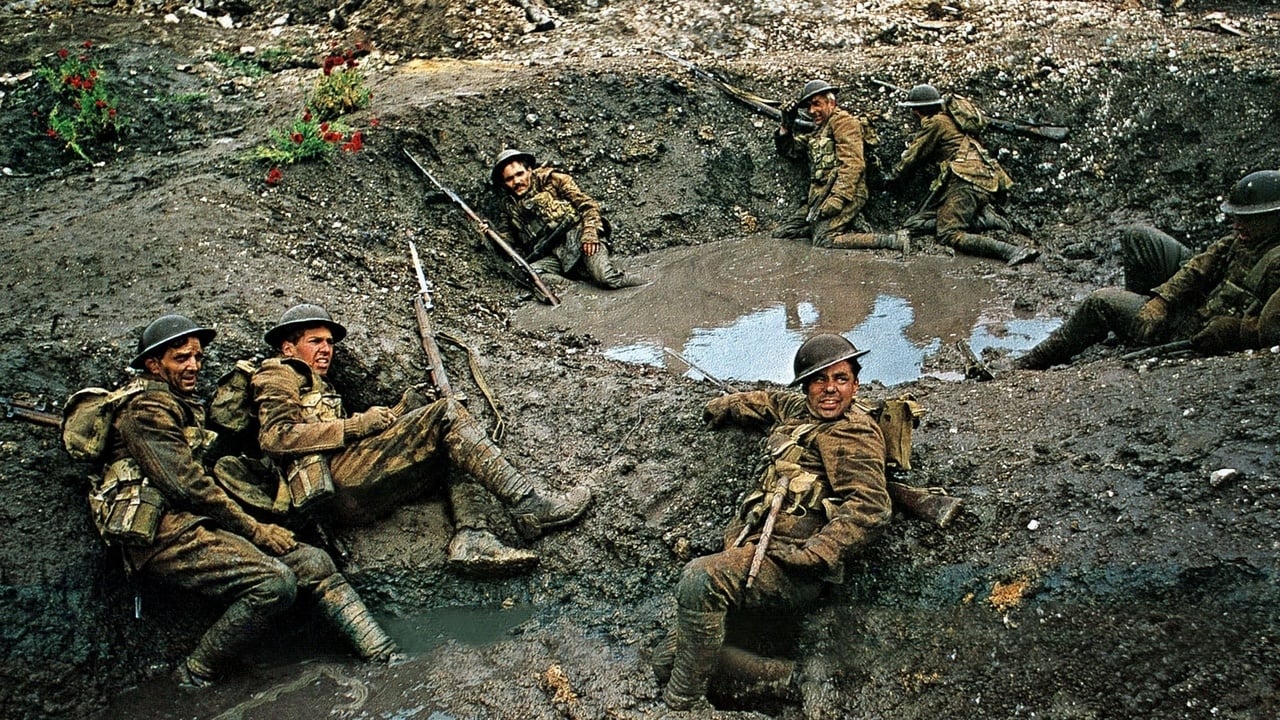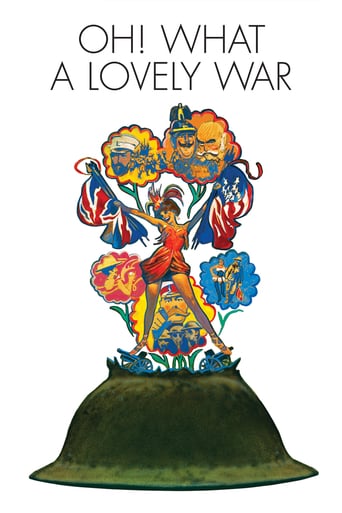

How sad is this?
... View MoreFantastic!
... View MoreGreat movie! If you want to be entertained and have a few good laughs, see this movie. The music is also very good,
... View MoreAfter playing with our expectations, this turns out to be a very different sort of film.
... View MoreStunningly successful cinematic treatment of a stage performance. Since I didn't see the stage show I'm not qualified to pass judgement on the filmic innovations, but I suspect they were ingenious and creative. The result is definitely cinematic, but highly unlike run-of the-mill movies. Packed with upwards of 25 recognisable British star names. The most memorable performance, imho, was that of Maggie Smith. I first saw this film about 1970, and the horrific moment when she reveals her harridan face has vividly stayed with me for 48 years. Another memorable scene was Corin Redgrave waving goodbye. Tickled to death to go. The film is also instructive. Amazing to discover that, by January 1915, 1,000,000 British men had actually volunteered to serve in this war. Particularly instructive was the film's opening section. Derided by some critics, I felt I learned a lot from seeing the map of Europe being rolled up, and the incomprehensible discussions between the major players. Does anybody know what this war was actually about ? It contrasts with the crystal-clear reasons for WWII, for which it paved the way. Underlying the narrative is the sinister but unavoidable sense that since we're all going to die, does it matter when ? Presumably it matters not when, but how. Hell's bells ting-a-ling for you but not for me. Toodle-oo, nah-poo, goodby-ee. Masterly: a far better film than Gandhi, which darling Dickie bangs on about in the DVD Special Feature.
... View MorePerhaps more potent in the mid 1960's as the Vietnam war was unfolding and creating all sorts of protest, this musical revue today seems very much a product of its time and is a mixed bag. Veddy British in its themes, it has a music hall feel about it, and the individual sequences are more interesting than the film as a whole.Stunningly photographed, this documents the events of what was to become known as "the great war", one that is greatly overshadowed by the memory of its sequel yet had a tremendous impact on Europe and lead to many changes, not only in the map of the world, but how governments were run. Subtle metaphors are tossed in to give a psychological view of historical incidents, and representations of real figures are added to make an interesting commentary. Red flowers are a symbolic prop throughout, with colorless battle scenes only given that touch of red to off-set the carnage.A music hall number with a singing Maggie Smith sets off patriotism with cynical irony and a single scene with Vanessa Redgrave as an anti-war speaker is also very profound. The emotional highlight of the film is a battleground meeting between British and German soldiers on Christmas day where they each put aside their duty to share brief brotherhood and verbalize their own distaste over what they are forced to do. All of a sudden, bombs go off and they each rush back to their side, preparing for a battle where they just might end up killing each other after all.There are certain scenes with representational sets that appear to be fantasies over an England that will never be again. At times profound, often perplexing, this may not appeal to general audiences. Interesting in a historical context, this is sort of a war-set "Cavalcade" where the life of one family, the plot box around which this is sent, is profoundly changed forever. Thanks to the artistic vision of first time director Richard Attenborough, this may not stand the test of time as a whole, but isn't quite a failure, either. The ending is a true heartbreaker.
... View MoreBy Hollywood rules, it should never have been made; no studs or ingénues as leading characters, no love interest,or heroic exploits,length more than two hours.. the humor is ironic, and makes you think more than laugh... But this is a great film. The original stage production had made a deep impression on John Mills, and it seems as though he, Olivier, Attenborough, Gilegud, Richardson and probably most of the rest of the star-studded cast thought they simply had to make this film, and it shows...(Yes, actual personal commitment, what a concept..)The subject is how the British nation were sold a war, and how the British military command refused to realize it when it became disastrous, and continued to waste thousands of lives to no purpose. Not your typical musical...But despite the theatrical setting on a Brighton Pier for some of the scenes, there's real history there. John Mills, as General Haig, really uses Haig's words, from his diaries, in all their comforting, delusional splendor. I only wish the film could have been re-released prior to Operation Iraqi Freedom, ( or whatever they're calling it now).
... View MoreAs others have said, I first saw this film in the theater in 1969 and loved it. The marvelous Maggie Smith was at the top of her game and Juliet Mills was never more beautiful or appealing. I have been waiting for "Oh, What a Lovely War" to be re-released on DVD ever since there was a DVD, so it's a treat for me that the day has finally arrived. This great film dramatizes in song and dance the events leading up to World War I and the human tragedy that resulted. It is based on a British musical of the same name. Despite its sometimes antic tone, it conveys an underlying sense of dread and sadness during a time when nearly a whole generation of young British men died. I suspect that its tragic tone is the reason many IMDb voters haven't rate it higher than they have. I have had the original cast recording of the stage musical upon which the movie is based since the '70s and this film does it justice. It is beautiful and it is moving. Not to be missed, 10 out of 10.
... View More